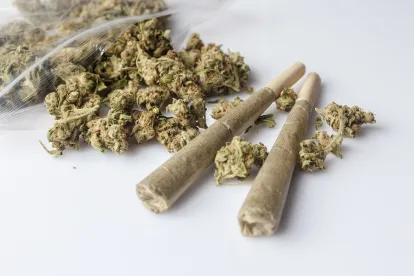Vermont’s Governor Phil Scott signed a recreational marijuana law on January 22, 2018. The law is the first recreational marijuana law to be enacted by a state legislature without a ballot initiative. It will take effect on July 1, 2018.
The law eliminates all penalties for possession of one ounce or less of marijuana and permits a person who is 21 years of age or older to grow up to two mature and four immature marijuana plants. However, marijuana may not be consumed in a public place, such as streets, parks, public buildings, places of public accommodation and places where the use of tobacco products is prohibited. The law also does not protect individuals from prosecution for being under the influence while operating a motor vehicle or consuming marijuana while operating a motor vehicle.
The law does not create a retail marketplace for marijuana.
Importantly for employers, the law provides that it shall not be construed to do any of the following:
-
Require an employer to permit or accommodate the use, consumption, possession, transfer, display, transportation, sale or growing of marijuana in the workplace;
-
Prevent an employer from adopting a policy that prohibits the use of marijuana in the workplace;
-
Create a cause of action against an employer that discharges an employee for violating a policy that restricts or prohibits the use of marijuana by employees; or
-
Prevent an employer from prohibiting or otherwise regulating the use, consumption, possession, transfer, display, transportation, sale or growing of marijuana on the employer’s premises.
The Governor’s Marijuana Advisory Commission has been directed to report on adopting a comprehensive regulatory structure for legalizing and licensing the marijuana market on or before December 15, 2018, in order to revise drug laws that have a disparate impact on racial minorities, help prevent access to marijuana by youths, better control the safety and quality of marijuana being consumed by Vermonters, substantially reduce the illegal marijuana market, and use revenues to support substance use prevention and education and enforcement of impaired driving laws.




 />i
/>i

